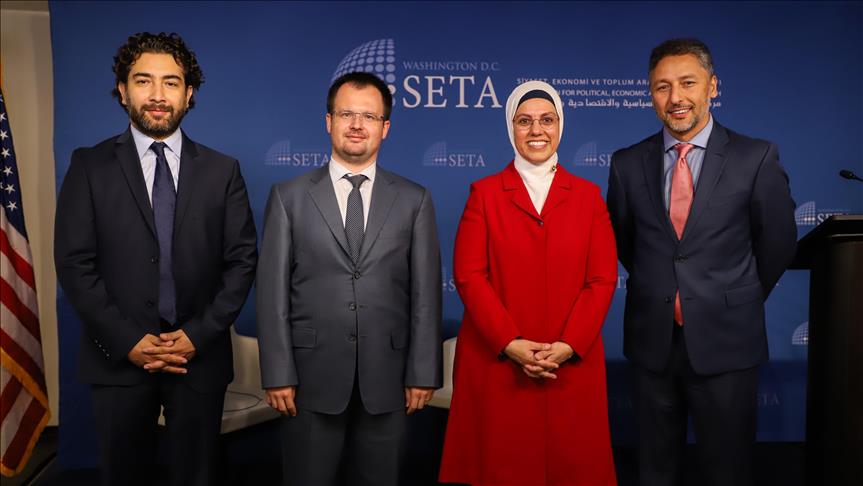We have been going through tough times; the times that on the one hand Turkish political life is familiar with and on the other hand has never witnessed before. I say familiar because Turkish political life has been home to fierce power struggles and efforts for tutelage over politics.
Today we face a crystal clear power struggle and a push for tutelage over politics.
What is new in the history of the Republic is the challenge of a “religious movement” to a “conservative ruling party.” This clearly shows the Gulen Movement and the Loss of Sunni Codes in the words of Burhanettin Duran, SETA-Istanbul General Coordinator.
We have been discussing actual and possible effects of this challenge on Turkish political life. But it is also necessary to lay on the table the effects of this process and of the rebellious move on the Gulen movement, one of the unique colors of Islamism in Turkey.
Perception that a large segment of the society has of Gulen movement seriously changed during the debates over the closure of prep schools. Believing that Prime Minister Recep Tayyip Erdoğan will not take any risk on the eve of the elections and will have to take a “step back,” the Gulen movement put on the agenda one of the drafts on the table, the regulation draft on prep schools which has been under discussion for about a year. The Movement relying on a large segment of the society saw the prep schools debate as an opportunity to have an upper-hand against the government.
During the initial discussions around the closure of prep schools, the Gulen movement indulged in the “discursive superiority” and tried to turn this discursive superiority into a political pragma. For the first time in its history, the movement demanded to be defined, in a way, as a legal entity by the state. Within this scope, the movement intended to sit at the negotiation table with the Prime Minister but failed to do so. Media outlets and figures, who became the voice of the movement, adopted a “strong opposition language” like never before. The language turned stronger during the December 17 operations (against the government) and morphed into a rebellious discourse directly targeting the Prime Minister.
The rebellious discourse was generated in the traditional media and new media by means of embedded journalism and guerilla communication methods respectively. Then the Gulen Movement began to regard an anti-AK Party discourse not only as a political position but also as a deep-seated identity.
Founder of the movement, Fethullah Gulen himself underlined that the governing Justice and Development Party (AK Party) unjustly uses its power; the power should rest with the jus not the AK Party: “Justice should have the power; the depth of the power depends on how its represents the justice” (November 29, Bamteli).
The elite of the movement under Gulen’s discursive framework generated guided messages in line with “the doctrine of battle against superstition”.” All the disciples of the movement were encouraged to get involved in the social media campaign and an explicitly political campaign was launched in order to force the government to resign under the hash tags such as “a pack of lies,” “ballot box cannot cover graft,” “Don’t cast aspersions on Gulen,” “legal scandal of the century,” “Prime Minister, stop aspersions,” “aspersions on the movement will not cover graft” and “graft lobby.”
Interestingly enough, the opposition strategy and attitude adopted during this period is similar to those of the leftist Kemalist-nationalist opposition when the AK Party came to power.
As one may remember, in their English broadcasts, nationalist figures of the period of 2003-2004 tried to use international media as a means to broadcast anti-government propaganda and prioritized the so-called “radical Islamist” aspects of th









